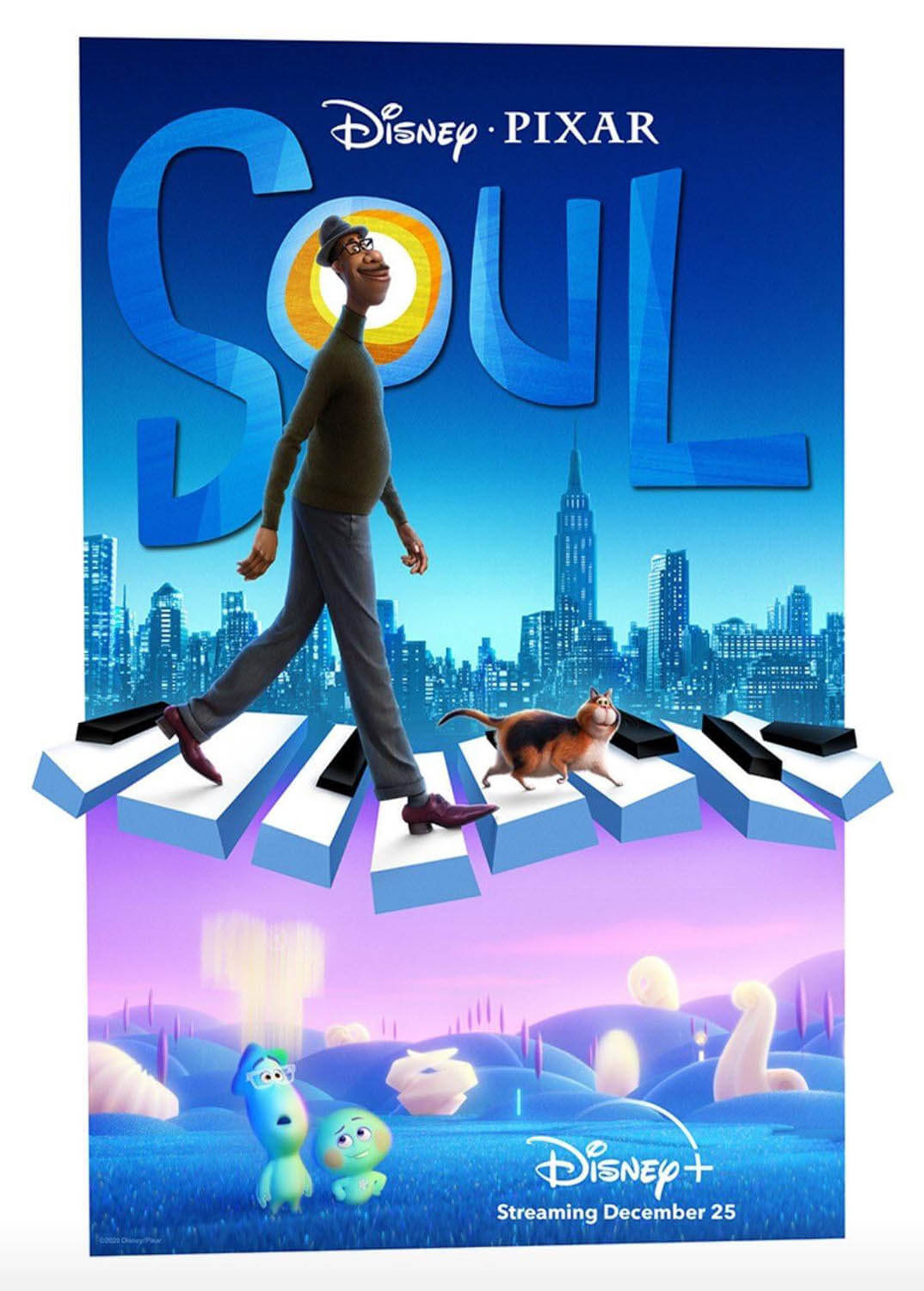Soul is a love letter to teachers that will probably bore your kids




Soul is Pixar’s latest existential film about the meaning of life, this time told from the almost-afterlife. Co-written and co-directed by Pixar impresario Pete Docter and Kemp Powers (who also adapted his own play for the screen in One Night in Miami), with a script assist from Mike Jones, Soul follows Joe (Jamie Foxx), a middle-aged band teacher who dreams of getting his big break playing jazz. I can’t think of anything less amusing to little kids than jazz, but here we are. When a former student calls with a chance to audition for a popular jazz quartet, Joe finally sees his chance to make it big as a musician. Excited to share his news, Joe yammers away on his cell phone while walking through the hazardous New York City streets, and eventually he falls down a manhole and apparently dies. Dark!
Propelled to the afterlife—which is a secular imagining carefully tooled not to step on any religious toes—Joe refuses to pass through the big white light and finds himself in the place where souls get their identities before being launched to a planet to live. Soul is not as rampant on the in-jokes and references that fuel films like Inside Out, but one fun touch is that the squiggle-shaped shepherds of the pre-life are all called “Jerry” and are voiced by people like Fortune Feimster and Richard Ayoade (who is always enjoyable whenever he pops up in any form, but mainstream Hollywood has not figured out how to best capitalize on Ayoade’s many gifts). There is also a “Terry” (voiced by Taika Waititi’s go-to actor, Rachel House), a squiggle-shape from the afterlife responsible for making sure “the count” is accurate as souls move from the living world to the afterlife. The Terrys and Jerrys might be the only part of Soul that effectively entertain your children.
Stuck in the pre-life, Joe is mistaken for a mentor, that is, a dead person who helps new souls find their “purpose” before they go to be alive. Joe is assigned to mentor 22 (Tina Fey), a soul who thinks everything about life sounds terrible and wants no part of it. But Joe is determined to get back to Earth to make his big audition, so things happen and 22 ends up in his body on Earth and Joe ends up in a cat. Oh no! They need to switch back, and the best way to do this is in “the zone”, that place people go when they’re really focused on something. There’s a chance the zone might catch a kid’s attention, as it is a place of neon color and glowing pirate ships, but I can’t fathom the child that gets the joke about a guy in the zone being a sign-spinner on a corner of New York. That guy, a hippie called Moonwind (Graham Norton), tries to help Joe and 22 get sorted, but 22 is beginning to like the idea of living, after trying some pizza and enjoying a nice day in the city.
The message of Soul is a good one: our purpose in life is not necessarily what we do, but the things we enjoy, and if you’re lucky—like Joe—those might be the same thing. But they might not be! And that’s okay! What is important is that we appreciate every day and not take for granted the great gift of life, that we don’t get so caught up in “making it” that we miss the little moments that make life beautiful. There is also a strong thread of teacher appreciation, as Joe not only teaches 22 that life is worth living, but we see his ripple effect in the world as a teacher. The student who invites him to audition, Curly (Questlove), mentions that he only stayed in school because of Joe’s influence. And one of Joe’s students, Connie (Cora Champommier), has a gift for music but needs Joe’s support to bolster her confidence and keep her motivated. In this year of all years, it feels good to have a film like Soul spreading teacher appreciation. Soul does not answer the question of whether or not Joe becomes a great jazz performer, but it does suggest that he realizes teaching is more important to him than he thought.
Pixar has their formula down pat, and they execute it here to perfection. It is also nice to see them commit to depicting the Black community, though your mileage may vary on how effective that depiction really is. It felt a little surface to me, but the importance of having a studio like Pixar commit to such representation cannot be understated. The score, by Trent Reznor and Atticus Ross, with jazz arrangements by Jonathan Batiste (Stephen Colbert’s band leader), is phenomenal, and there is a great sequence that recalls Fantasia in which music is represented abstractly on screen. There is a great deal admirable about Soul, but it is being marketed as a family film, and I just cannot imagine this holding young children’s attention for very long.
Inside Out toes close to this line, too, but it has Bing Bong and a simple analog for feelings that children can digest. It is designed to work for kids AND adults, like most Pixar movies (a few, like Cars, are just for kids). Toy Story 4 is also heavily existential, but it has Forky and the gimmick of toys coming to life. Soul has no Forky or Bing Bong, it has jazz and a lesson about appreciating life, something little kids haven’t had a chance to get burnt out on in the first place. Soul is a good movie, for sure one of the best animated films of the year, but despite its squiggle-shaped vision of the afterlife, it lacks a certain whimsy to appeal to children. Just don’t be surprised, if you’re a parent, when you put this movie on if you end up bawling your eyes out while your kids wander out of the room, bored.
Soul will be streaming on Disney+ from December 25.

